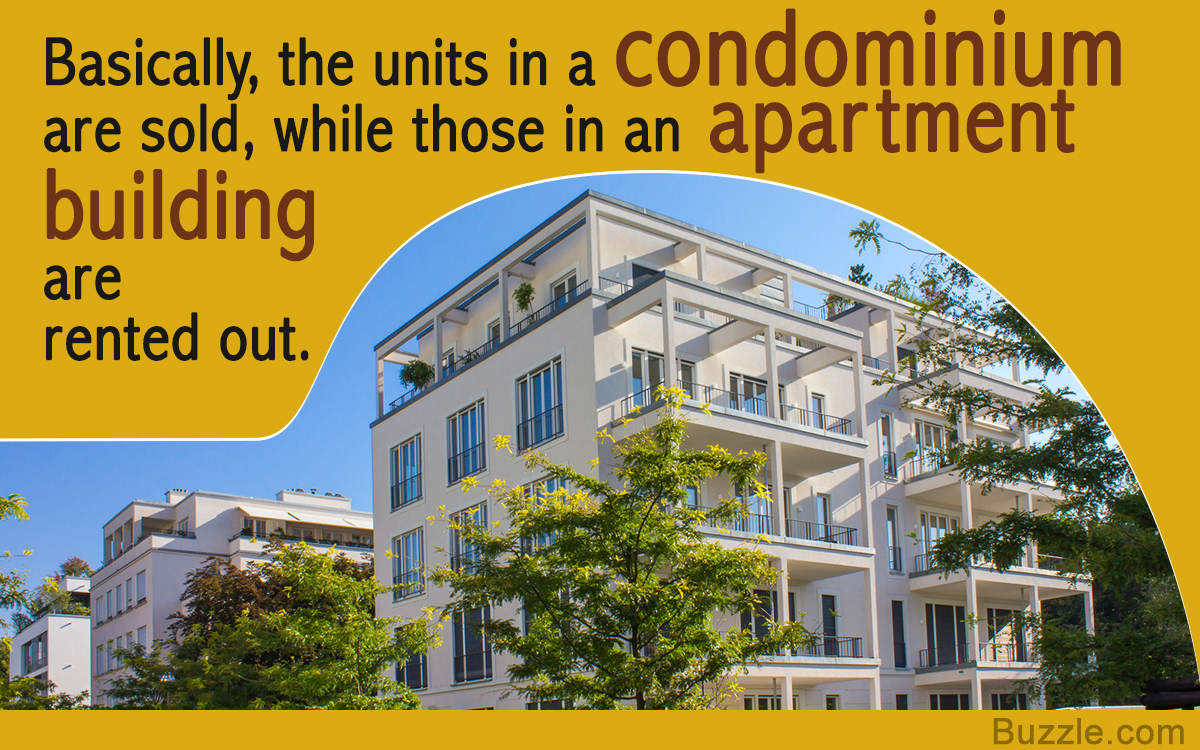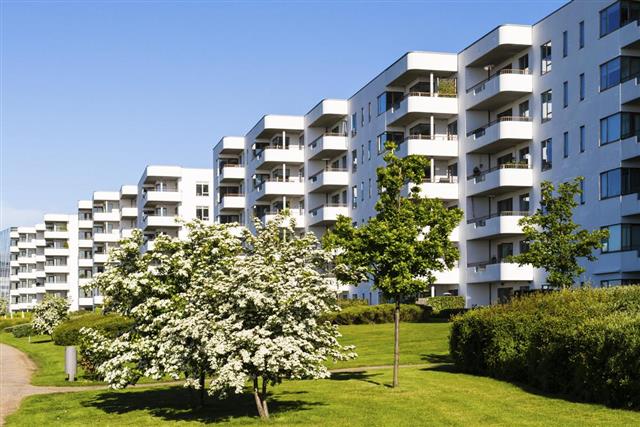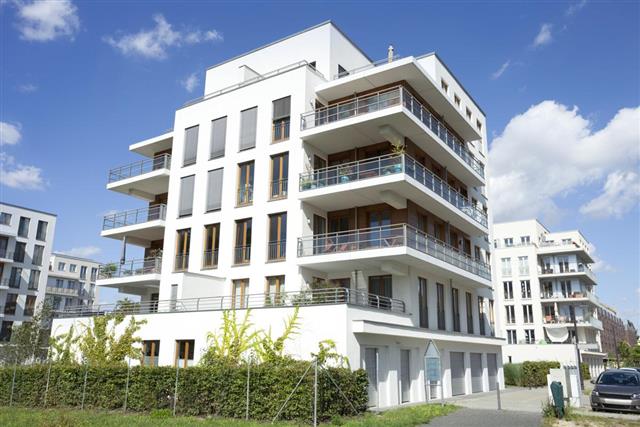
If you are looking for a residential space, you are bound to come across two options – a condo and an apartment. Before you decide to go in for either of these two, you should acquaint yourself with their individual advantages and drawbacks.
Nomenclature
The name ‘apartment’ has French and Italian origins, and means to separate or divide. The name ‘condominium’ originates from the Latin words – ‘con’, which means together with, and ‘dominion’, which means right of ownership.
There are different kinds of people in this world; and while it is fun to intermingle occasionally, you might find that living every day in close proximity of someone who is the exact polar opposite of yourself isn’t the most enjoyable of experiences. Perhaps this is the reason why builders and developers try and construct diverse residential spaces, each meant to cater to a different group of people.
Condos and apartments are two such living spaces commonly found in most cities and towns all over the world. But they aren’t just distinct residential spaces. They are in fact, meant for people desiring entirely different lifestyles. So which of them is right for you? To find out, you will need to understand what the pros and cons of residing in each of these are. But before that, let’s begin by examining what condos and apartments actually are.
What is an Apartment?
An apartment is an independent, self-contained property, which is a part of an apartment building. Such a building may be a small one, comprising only a few tens of apartments, or may be a large multi-storied one, having hundreds of apartments in it. In some places, apartments are also referred to as flats.
The building is completely owned by the builder, developer, or a third party, while the individual apartments in it are rented out. The people who live in these rented apartments are known as tenants.
Apartments usually do not have an owner’s association, nor any extra services or benefits. Other than the monthly rent, a tenant is not required to pay any community membership, monthly maintenance fee, or the like.
What is a Condo?
A condominium, popularly known as a condo, is a shared property comprising separate residential spaces which are individually owned. By definition, it can either be an apartment house, an office building, or any other multi-unit complex, wherein each unit is sold to different buyers.
From a legal point of view, an apartment that is owned can be considered to be a condo. The buyer is given full ownership of the property, and is free to remodel and repaint the interior of a condo, while adhering to the rules of the condo owner’s association.
Owning a condo means that you are a part of a cooperative society. You automatically become a member of the condo home owners association (HOA), and therefore, are eligible to all the services and facilities that are provided. These typically include maintenance and repairs, lawn care, pools, gyms and club houses. Most condos comprise common areas like hallways, swimming pools, tennis courts, etc., which are jointly owned by all the members of the association.
Condo owners are required to abide by the rules and regulations of the society. Most commonly, a condo board is elected each year, which decides on these rules, and also looks after the various maintenance needs of the entire residential complex. The property maintenance cost is shared by all the existing members of the condo home owners association, and typically is payable on a monthly basis. Many owners are also required to pay an annual condo membership fee.
Main Difference Between a Condo and an Apartment
A condo and an apartment might seem like they are one and the same thing. Just by looking at a residential complex, you won’t be able to tell if the units within it are condos or apartments. There is physically no concrete way to distinguish between an apartment and a condo. The difference between them lies in the ownership.
To put it simply, a condo is a privately owned apartment in a building of similar units, while an apartment is one of the many similar units in a building, all of which are owned by a single entity, and are leased out individually.
Condo Vs Apartment – Other Differences
Upfront Cost
Unless you have the cash amount with you for buying a condo, you will need to secure financing. You will thus be paying the down payment, and the principal and interest related to the mortgage. Along with this, you will also have to shell out money for the closing costs.
In contrast, renting an apartment can be much cheaper, typically requiring you to pay only the security deposit and the first month’s rent.
Pricing and Appreciation
While buying a condominium will mean that you will be required to shell out a higher amount than simply renting an apartment, it also means that you will own your property. This will allow you to enjoy the benefit of rising real estate values and price appreciation of your property. You can sell your condo or even rent it out. Thus, buying a condo as opposed to renting an apartment is a real estate investment, which most certainly can allow you to make money.
An apartment is a space that has been rented to you. Hence, it isn’t truly yours, and so you can’t sell or rent it out further. Thus, renting an apartment cannot be considered as a real estate investment. The value of an apartment will increase, but the benefits will go to the landlord who actually owns the place.
Hidden Costs
Owning a property is definitely a good investment. However, it also means that you will be required to incur certain hidden costs. As a condo owner, you will have to pay property taxes on your space. Additionally, you will also need to pay the membership fees for the home owner’s association (HOA), as well as the maintenance fees. Other than these, some condo owners are also required to pay special assessment fees to cover all the additional costs that the HOA might have borne that year.
As an apartment tenant, all you need to be concerned about is the monthly rents, since it is up to the landlords to look after the taxes. Also, since by renting an apartment you don’t become the member of any association by default, you don’t have to shell out on membership or maintenance fees.
Alteration and Modification
Though you gain full ownership of the property when you buy a condo, making external structural alterations to it is not permitted. However, you will still be able to remodel or repaint the interiors, as long as you abide by the rules of the HOA.
In case of rented apartments, since you don’t own the place, you won’t be allowed to redecorate or personalize the interior or exterior, beyond a certain limited extent. The common restrictions include not being able to repaint, change fittings and fixtures, modify an existing wall, install a bigger air conditioner, etc.
Maintenance
The maintenance fee paid to the HOA will cover the exterior maintenance of a condo, along with the upkeep of the entire complex, including exterior paint, walkways, parking lots, and other amenities. However, the interior of a condo will usually not be covered. The owner himself will have to shell out extra for the maintenance of the interior of his property. These may include a leaking faucet, electrical works, plumbing, etc.
The maintenance of both, the exterior as well as the interior of an apartment is usually the landlord’s responsibility. The cost for this is included in the rent that a tenant pays, and is usually significantly smaller than the maintenance fee that a condo owner pays.
Type of Lifestyle
A Condo owner is part of a small and rather closely knit community. This can be a big perk in case of an emergency, as you would have plenty of people around that you know whom you can ask for assistance.
An apartment is better suited for a more independent type of lifestyle. A tenant is expected to look after his/her own needs, and due to the absence of a dedicated members organization, he has to himself go out and socialize.
Duration of Stay
Moving out is not so simple for a condo owner, as he has the mortgage to take care of. Before shifting to a new locale, he has to decide whether to sell off the condo or to rent it out, provided that the HOA allows renting in the first place.
Comparatively, since the tenant of an apartment doesn’t own the property, he has the flexibility of moving away in a moment’s notice.
Which One to Choose?
A condominium and an apartment are two types of residential spaces, which may be similar in appearance, but are subject to different laws and rules. Each of them have their own set of advantages and drawbacks.
So, is it better to live in a condo or an apartment? Well, the answer solely depends on your individual preference and needs. If you want a carefree, non-permanent type of living style in a space that is easy to maintain, then an apartment should be your choice. However, if you want a good and profitable real estate investment, which provides a community type of living, along with all the additional perks and benefits, then a condo might be the right choice for you.


